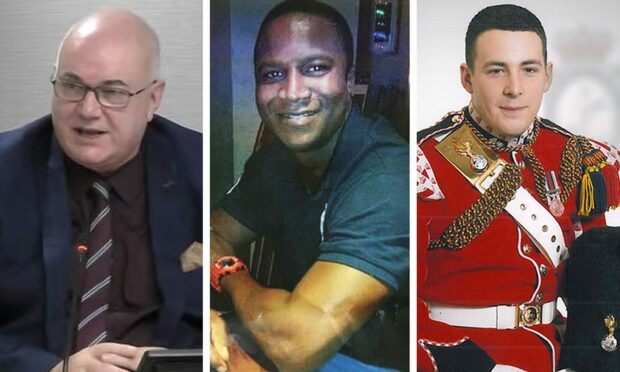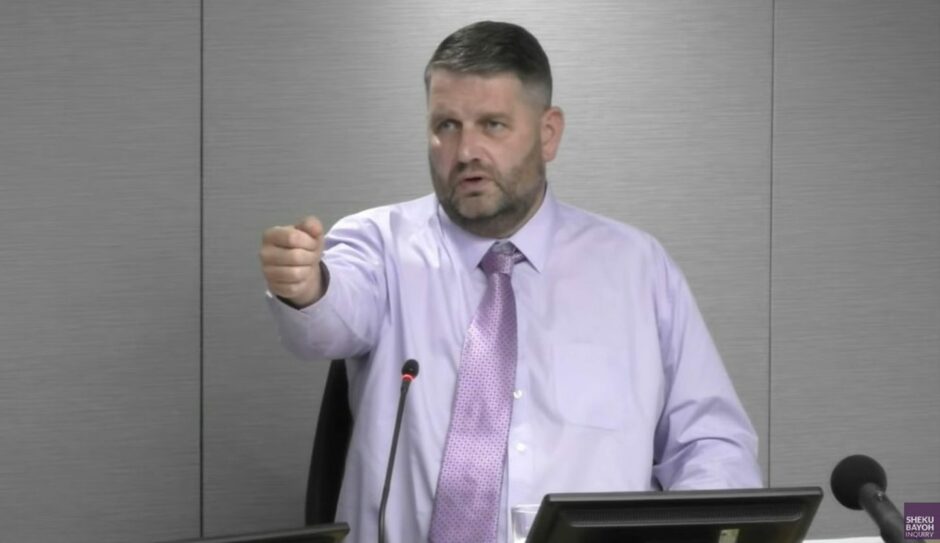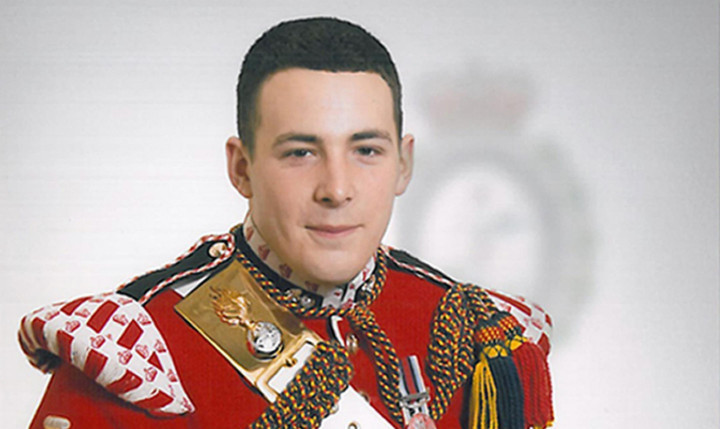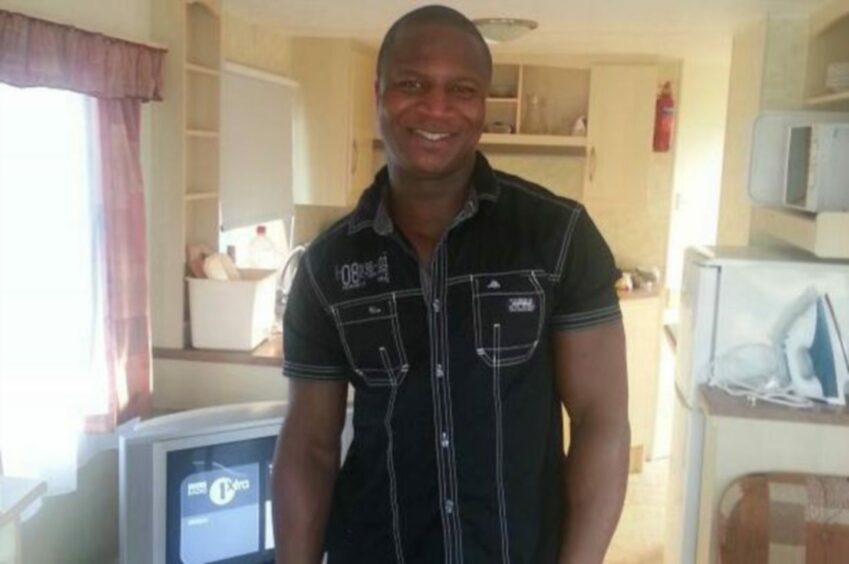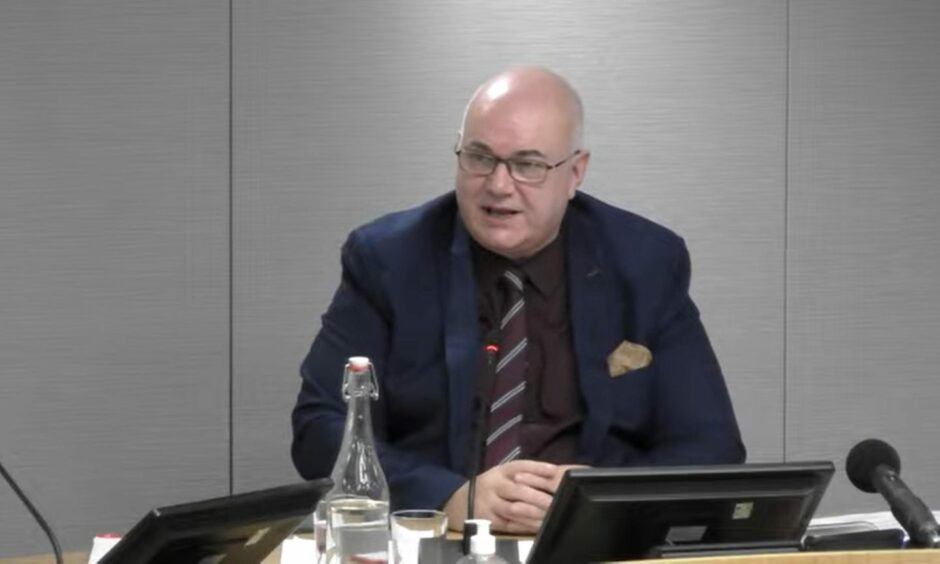The heightened UK terror threat in 2015 could have had an impact on the decision-making of officers who restrained Sheku Bayoh, an expert has said.
Martin Graves, a use-of-force expert who formerly worked with the Metropolitan Police, told the inquiry into Mr Bayoh’s death that officers had been warned to be alert to potential terrorism incidents.
One of the police officers involved in the restraint previously told the inquiry he feared a “Lee Rigby incident”.
Fusilier Rigby was run over and stabbed to death by terrorists in 2013.
Sheku Bayoh died in police custody in Kirkcaldy in May 2015.
Asked at what point a reasonable officer would be expected to bear the terrorism risk in mind when dealing with a reported knife incident, Mr Graves said: “At that particular time the risk specifically to police officers within the UK was severe.
“There had been intelligence and circulations from the counter-terrorism command in relation to the possibility of officers being lured into situations whereby the primary objective was for a lone wolf or lone terrorist or a terrorist cell to attack and kill a police officer on the UK mainland.
“So that was reiterated.
“It had actually appeared on various news media outlets and it had been disseminated within the police service across the whole of the UK.
“If that was in an officer’s thought processes it would impact on their perception of dealing with certain types of calls and to a degree, give them that hesitancy in relation to ‘is this a genuine call or is this not a genuine call?’
“Again, looking at that intelligence based against the information it may well impact on an officer’s decision-making process.”
‘Human nature’ to consider race
Asked if the race of a suspect could have an impact in relation to this, he said: “It would be a factor if it was part of the intelligence provided to that officer.
“If I think I’m dealing with a terrorist incident… that must factor into my thought processes if I come across an individual who meets that profile.
“It’s human nature to apply that thought process.”
He said it was reasonable to consider race but it must be “tailored” with other information around the individual.
Mr Graves added where there was no link to terrorism race “shouldn’t be” a factor in determining the level of threat.
“It should be more around the actual physical attributes and any understanding or knowledge of the individual or similar individual.
“Race itself shouldn’t be a specific risk factor.”
However, he recognised there was a risk of racial stereotypes affecting perception of the level of threat.
Handcuffs evidence
Mr Graves also told the inquiry handcuffs would impede a CPR attempt and he would expect a reasonable officer to remove them.
The inquiry has previously heard Mr Bayoh’s handcuffs were still in place when he arrived, unconscious, at Kirkcaldy’s Victoria Hospital.
He added officers’ priority would be giving CPR.
“You’re basically in life-saving mode, rather than comfort mode or treatment mode – you are trying to save this individual’s life by delivering CPR,” he said.
